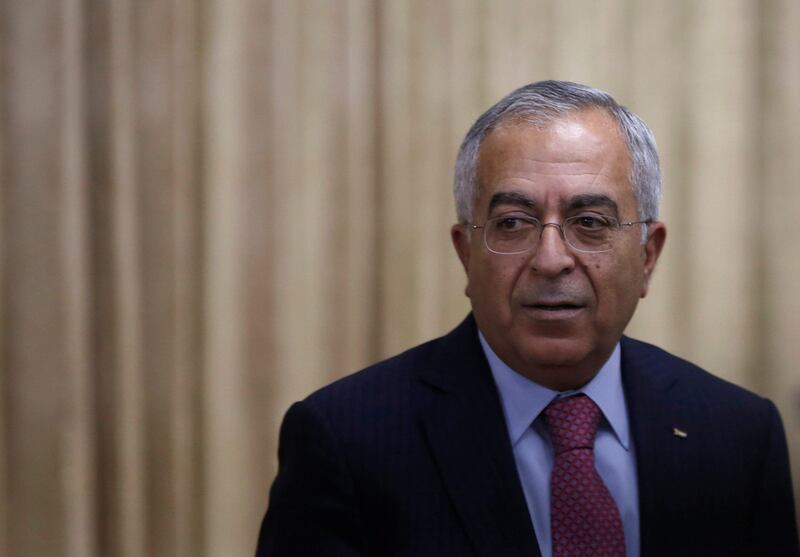Ramallah // The Palestinians condemned as “blatant discrimination” Saturday Washington’s decision to block the appointment of their former prime minister Salam Fayyad as UN peace envoy to Libya.
UN chief Antonio Guterres nominated Fayyad to the post on Thursday and the Security Council had been expected to approve his appointment without objections.
But late on Friday, US ambassador Nikki Haley announced she was blocking the appointment because “for too long, the UN has been unfairly biased in favour of the Palestinian Authority to the detriment of our allies in Israel.”
Palestine Liberation Organisation executive committee member Hanan Ashrawi dismissed the “flimsy excuse” for a move she described as “unconscionable.”
“Blocking the appointment of Dr Salam Fayyad is a case of blatant discrimination on the basis of national identity,” she said.
Mr Fayyad, 64, was prime minister of the Palestinian Authority from 2007 to 2013, and also served as finance minister twice.
He had been tapped to replace Martin Kobler of Germany, who has been the Libya envoy since November 2015.
US President Donald Trump and Ms Haley have criticised the United Nations for adopting a resolution in December that demanded an end to Israeli settlement building.
“Going forward, the United States will act, not just talk, in support of our allies,” Ms Haley said on Friday.
But on Saturday, Mr Guterres defended his choice. The decision to put forward his candidacy “was solely based on Mr Fayyad’s recognised personal qualities and his competence for that position,” said UN spokesman Stephane Dujarric.
“United Nations staff serve strictly in their personal capacity. They do not represent any government or country,” he said.
Mr Dujarric said no Israeli and no Palestinian had served in a high-level post at the United Nations and that “this is a situation that the secretary-general feels should be corrected,” based on personal merit and competencies of the candidates.
Appointments of the UN special representatives of the secretary-general require the unanimous backing of the 15-member council.
The blocking of Mr Fayyad comes as the situation in Libya continues to deteriorate.
A group of Libyan militias entered the capital Tripoli on Thursday and said they were creating a “Libyan National Guard”, to the alarm of the country’s unity government.
The Libyan capital has been controlled by dozens of militias with shifting loyalties and territories since the overthrow of dictator Muammar Qaddafi in 2011.
On Thursday, Mahmud Zagal, a militia commander from Misurata, said the guard would stay out of “political, party and tribal disputes”.
It aims to continue the fight against ISIL, secure state institutions and diplomatic missions, he said in a statement.
It did not say whether or not it would support Libya’s UN-backed Government of National Accord, which has struggled to assert its authority across Libya or even control the capital.
A GNA source said on Saturday that most of the groups involved had taken part in a seven-month battle to oust ISIL from its stronghold of Sirte, which fell in December.
Misurata’s well-armed militias, which control much of western Libya, led the fight but say the GNA stopped supporting them after Sirte fell.
“They now feel marginalised and are looking for support,” the source said, asking to remain anonymous.
GNA officials met on Saturday with the group’s leaders “to attempt to find a solution”, the source said.
Several locals said the militias included backers of Khalifa Ghweil, the leader of a self-proclaimed “Government of National Salvation” which in January tried and failed to seize three government ministries in the Libyan capital.
The development adds to the chaos that has rocked Libya since Kadhafi’s fall.
It also weakens the GNA, which has been unable to establish its authority despite its efforts to create a “Presidential Guard” to secure state institutions and diplomatic missions.
Formed in March last year, the unity government faces hostility from a rival authority based in the east of the country, which refuses to recognise its authority.
* Agence France-Presse and Reuters





